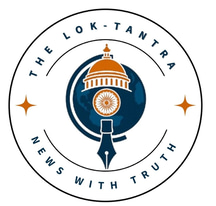Anura Kumara Dissanayake Elected as Sri Lanka’s New President: A Historic Shift
NEWS
9/23/2024
Anura Kumara Dissanayake, leader of the Janatha Vimukthi Peramuna (JVP), has been elected as the new President of Sri Lanka, marking a significant moment in the nation’s political history. Known for his strong leftist stance, Dissanayake’s victory represents a break from the traditional political elite. His ascent comes during a time of deep economic and political crisis in Sri Lanka, and his platform promises reforms aimed at addressing corruption, inequality, and governance inefficiencies.
A Revolutionary Background
Dissanayake’s political journey has been shaped by his involvement with the JVP, a Marxist-Leninist party that has historically played a controversial role in Sri Lankan politics. The JVP, which was once involved in violent uprisings, has transformed over the years into a legitimate political force advocating for socialist policies and reforms. Dissanayake, born in 1968, entered politics during the late 1980s and quickly rose through the ranks of the JVP due to his leadership skills and commitment to the party’s core values.
He has been an outspoken critic of Sri Lanka's entrenched political dynasties and the widespread corruption that has plagued the country's governance. Dissanayake's rhetoric often targets the political elite and their failure to address the country's economic woes, offering himself as a reformist alternative committed to rooting out corruption and implementing social welfare programs.
Political Context and Election Victory
Sri Lanka has been grappling with an unprecedented economic crisis marked by soaring inflation, fuel shortages, and widespread public unrest. The country’s political landscape has been volatile, with mass protests against the government leading to the resignation of former President Gotabaya Rajapaksa in 2022. In this context of national crisis, Dissanayake’s election is seen as a response to widespread public disillusionment with traditional political figures and dynasties that have dominated Sri Lanka for decades.
The new president’s victory is not only a personal triumph but also a reflection of the growing appeal of leftist politics in the country. His campaign focused on economic reforms, reducing inequality, and rebuilding the country’s shattered economy through anti-corruption measures. He has also pledged to restore democratic governance and ensure transparency in government dealings.
Challenges Ahead
Dissanayake inherits a country in turmoil. Sri Lanka’s economy remains in a fragile state, with foreign debt mounting and inflation putting immense pressure on the population. His immediate challenges include stabilizing the economy, ensuring basic supplies like food and fuel, and renegotiating Sri Lanka’s international debt obligations.
Moreover, Dissanayake will have to navigate a divided political landscape. While his supporters see him as a leader who can bring genuine change, others remain skeptical about the ability of the JVP, with its revolutionary roots, to govern effectively in the modern political environment.
Conclusion
Anura Kumara Dissanayake’s election as Sri Lanka’s new president marks a pivotal moment in the country’s history. As a leader with strong leftist credentials, he faces the dual challenge of addressing Sri Lanka's immediate economic crisis and implementing long-term reforms. His presidency promises to be a test of whether a political outsider can truly deliver on the promise of change in a country long dominated by political dynasties.
